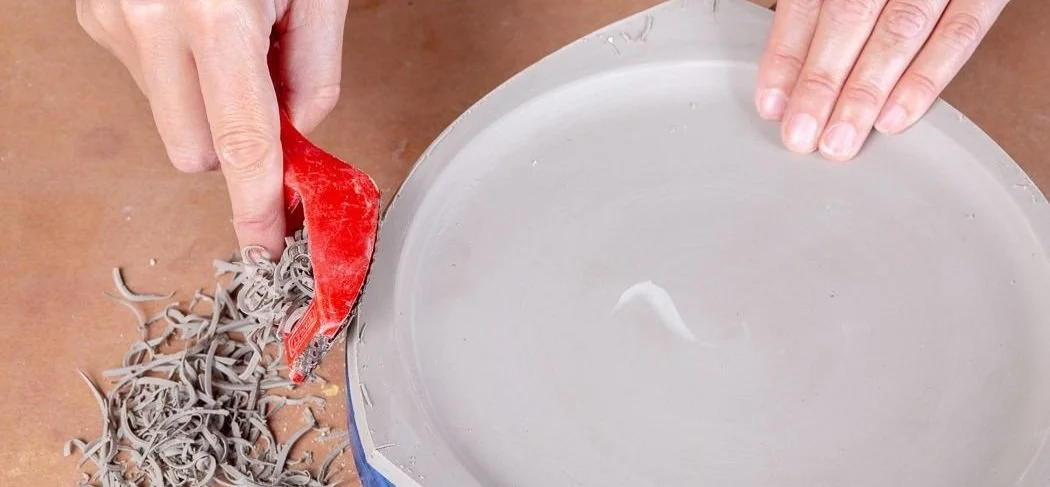Favorite Tools
Here are a few of Deb's favorite essential hand tools!
If you are taking a beginning clay class, this might be a few more than you need. Try out a basic tool kit first and then add to your collection.
Basic 9 Piece Tool Kit OR Basic 17 piece Tool Kit
A. Plastic - Thin sheet plastic is good as it does not scuff fresh soft clay as much. I like to use dry-cleaner bags or the thinnest painter's drop cloths from my local hardware store.
B. Hole Punch - When you are making a citrus juicer or colander, these make the punching simple.
This image is from Deb’s book - Creative pottery
C. Wooden Tools - Great for smoothing and mark making
D. Rasp - Shred the edges down or taking uneven clay away on leather-hard pots.
E. Loop Tools - These are for trimming, carving clay, or making handles!
Mini Ribbon Kemper Tools for sculpting and fine detailing
Xiem Loop Tool Large versatile larger shape
F. Knife Tool: Dolan 220C -This is a thin metal blade with a wooden handle. This is one of my favorites and this particular one was passed down to me by a special pottery mentor Kris Bliss. Alternatives to this are:
G. Pin Tool - Use this to find the thickness of clay when throwing or for popping small air bubbles. It can also use this as a cutting or scoring tool.
H. Scoring Tool - Simply the BEST! Wonderful for scoring carefully and not making a mess of a pot. It has small tines attached to a metal handle.
I. Wooden Rib - These come in all shapes and sizes. I use a big one with a soft curve for plates. Smaller ones are great for bowls, making texture, and undercuts when throwing. They can also be great for compressing slabs.
J. Serrated Metal Rib - When I make bisque molds, this tools helps me blend the coils together. It can also be used as a scoring tool for larger areas of clay.
K. Metal Rib - a helpful smoothing tool on leather hard clay, when throwing, or compressing slabs.
L. MKM Dividing Tool - These come in large and small sizes. Align the rings with the rim of your pot and use a pin tool to poke even or odd divisions.
M. Rubber Ribs - MudTools makes fabulous ribs and a bunch of other fun tools. Each color has a different firmness that is helpful for smoothing and compressing clay.
N. Rolling Pin - Once I have a slab generally the thickness I want, I use a rolling pin to refine the thickness.
O. Paint Brushes - Soft full brushes hold water well and I use them for adding water to the surface of a seam before I score or for applying glaze. Stiff Bristle brushes, like this old long oil painting brush are great for smoothing hard-to-reach seams.
P. MudTools Baby Bump - This is important for compressing seams in hard to reach areas
Q. Spray Bottle - A handy tool for hydrating pots
R. Scouring Pad - I prefer Scotch-Brite as they last longer. I cut them up into smaller pieces and use them to wet sand away unevenness.
S. Sponge - I follow up the wet-sanding with a Scotch-Brite with a sponge and always make sure there is no standing water in my pots.
T. Cut-Off Wire - An essential tool for cutting down a block of clay or removing a pot from the wheel head.
U. Calipers - When making lids or sets, calipers help with a perfect fit.



